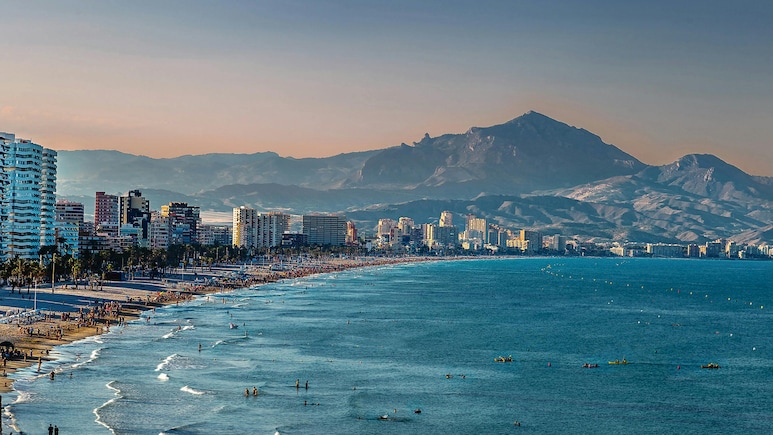
Spain's sun-kissed beaches are a haven for travellers worldwide. However, a recent invasion of venomous sea creatures has forced authorities to shut down some popular tourist spots in the country. The beautiful beaches of Guardamar del Segura, located in the southeastern region of Alicante (Costa Blanca), have been closed due to the presence of "blue dragons," also known as Glaucus atlanticus. These small, shimmering blue sea slugs may look harmless, but their sting can cause intense pain, nausea and allergic reactions.
Also Read: Real Or Fake? Video Claiming To Show Shah Jahan And Mumtaz's Graves Breaks Internet
In a post shared on Facebook, the Guardamar police force said, "Due to the appearance of the blue dragon (Glaucus atlanticus), and for motives of citizen safety, we have banned all swimming on all of the municipal beaches until a new order."
They added, "We urge neighbours and visitors to respect the directions, exercise caution and avoid direct contact with specimens that may appear in the sand."
The mayor of Guardamar del Segura, Jose Luis Saez, urged the public to report any sightings of the venomous blue dragon sea slugs and to avoid touching them, even with gloves. If stung, he advises rinsing the affected area with saltwater and seeking medical attention.
Also Read: Indian Traveller Calls Out "Worst Lunch" Experience At Eiffel Tower Restaurant
What is a blue dragon?
Named for its mythical resemblance, the blue dragon is a small creature, approximately 3 centimetres (1.2 inches) long. Despite its size, it can deliver a potent sting, having fed on venomous animals like the Portuguese man o' war and concentrated their venom. This allows it to paralyse prey much larger than itself.
Blue dragons are fairly uncommon in the Mediterranean. They are typically found in the temperate and tropical waters of the Atlantic, Pacific and Indian Oceans, where they are carried along by ocean currents and the wind.
Also Read: Planning A Trip To Spain? Start With These 5 Destinations
More about Spain's Costa Blanca
The Mediterranean coastline surrounding Alicante is known as the Costa Blanca or White Coast. The popular 200-kilometre stretch of southeastern Spain's Mediterranean coast is popular for its well-developed tourism industry, diverse beaches and a pleasant climate.
This White Coast extends from the town of Denia in the north to Pilar de la Horadada in the south, offering a variety of landscapes from sandy beaches and bays to rocky cliffs and mountains. Key destinations along the Costa Blanca include the cities of Alicante, Benidorm and Denia.
Track Latest News Live on NDTV.com and get news updates from India and around the world

